Their relationship started as a battle. Gilgamesh was King of Uruk, known for raping women, forcing subjects into labor, and constant wars. Enkidu was a beast, made to be an equal to Gilgamesh, to keep Gilgamesh’s ego in check. Their relationship started as a battle, and it morphed into a friendship, a brotherhood, and eventually into that of lovers.
It was his immoderation that caused Gilgamesh to suffer most from his instability; he was, however, king of Uruk. Gilgamesh was a compound of two parts god and one part man.1 There was no equal to him, and he had both outstanding virtues and tremendous flaws. Warriors and builders admired him for his fierceness and ambition. His subjects, however, were exhausted by constant battle, forced labor, and arbitrary rules until Enkidu, Gilgamesh’s near equal, arrived to counterbalance him. Enkidu’s friendship calmed and focused him. Grieving deeply after the loss of Enkidu, Gilgamesh feared he would die too. He abandoned worldly desires like glory, wealth, and power that he once epitomized as king, and started a quest to know eternal life’s secret. His divine and mortal attributes were instead brought into harmony through wisdom. Gilgamesh became a better king as he reconciled himself to his mortality.2
Gilgamesh is described as terrifying and powerful at the beginning of the story. Every time he felt like fighting, he sacrificed warriors, raped the wives of his nobles, and trampled anyone who stood in his way.3 Old men from Uruk complained about the king’s behavior, saying he should protect his subjects like a shepherd, not harass them like a wild boar. There was listening from the gods. Aruru, the goddess of creation, was told to prepare someone who could stand up to Gilgamesh, since she made him. To create another man, called Enkidu, Aruru moistened clay with her spit. His natural habitat was the wilderness with animals, far from cultivated fields and cities. His hairiness was one of his most distinguishing physical characteristics. He was spotted at a watering hole by a hunter one day. As he returned home, scared, the hunter told his father he saw the strongest man in the world. The hunter claimed that the man removed the traps and pits he set, making it impossible for him to hunt anymore.4
Gilgamesh recommended that the hunter take a prostitute from Uruk to defeat Enkidu. Gilgamesh traveled back to the wilderness with the prostitute following his own father, Lugalbanda’s, advice.5 Three days pass by as they waited by the watering hole. The prostitute was told by the hunter to lie down on a blanket and show Enkidu her breasts. Her next six days and seven nights were filled with sexual activity with Enkidu. The animals no longer revered Enkidu as one of their kin after his lust had been satisfied. Their only option was to run away from him. It was difficult for Enkidu to gallop anymore, due to his weakening and his inability to pursue the animals as he used to. An awakening had taken place in his mind. When he returned to the prostitute, he was troubled and confused, but she reassured him by telling him about the charms and wonders he would discover in Uruk. Gilgamesh became a strong, terrible king, and she told him about food, music, and festivals. Enkidu became increasingly lonely once he heard about Gilgamesh. There was a strong desire within him to meet and compete with him.
Despite Gilgamesh’s strength and incapacity to conquer him, Enkidu told the prostitute that he longed for a friend, just like Gilgamesh. It was true that Gilgamesh had already dreamed twice about Enkidu. An asteroid landed outside Uruk in the first dream.6 As if the rock were a woman, Gilgamesh was drawn to it. His mother, Ninsun, received it after he lifted it with great effort. An axe lay on the ground in Gilgamesh’s second dream. It was surrounded by throngs of admirers. Ninsun told him that the axe also represented the person he was soon going to face; the person who would become his closest friend and counselor; the person who had the power to save him from destruction.7
An ornate platter was brought into camp by a stranger one day. It was Enkidu who inquired of the harlot about him and his traveling plans. According to the man, he had been invited to a wedding ceremony in Uruk and he would be bringing offerings. The man said King Gilgamesh would lay with the bride before her husband, even though he was not the groom. It was impossible for anyone to resist Gilgamesh’s power to take whatever he desired. As Enkidu believed Gilgamesh could not defeat him, he decided to challenge him in Uruk. A man as beautiful as Gilgamesh was greeted with amazement when Enkidu appeared in Uruk. He was hailed as their champion by the crowds that surrounded him. A defiant Enkidu blocked the king’s attempt to enter the bride’s bedchamber by blocking the threshold.
Despite their enormous sizes, these two giants were locked in combat as they battled through the streets. During the fight, they trembled the walls and shook the doorposts. The stronger Gilgamesh eventually wrestled Enkidu to the ground.Their anger was immediately forgotten. Enkidu acquiesced and pledged his fidelity to Gilgamesh as ruler of Uruk. In a declaration of friendship, Gilgamesh declared his undying loyalty to his former rival. Kisses and embraces were exchanged between the two men. Enkidu would be Gilgamesh’s faithful companion, according to Ninsun, Gilgamesh’s mother.8
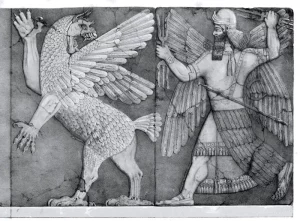
Having been rivals in the past, the former foes were looking for a worthy adventure to complete together. The god Enlil had appointed Humbaba as guardian of the distant Cedar Forest, a forbidden place to mortals. Enkidu told Gilgamesh about Humbaba, a fearsome monster. The Demon Monster threatened Gilgamesh with death, but Gilgamesh believed Enkidu was wrong when he warned him that it was invincible. Death was acceptable to Gilgamesh so long as his mark was indelible on the living. Enkidu’s fame would also be assured if he was able to kill Humbaba or die at his hands. Having persuaded Enkidu to join him, Gilgamesh ordered new weapons, such as axes, swords, and bows, from the armor makers. Taking their fate into their own hands, they prepared for the journey ahead.9
In addition to offering water to the sun god Shamash, the old men reminded Gilgamesh to acknowledge his father, Lugalbanda, who could protect him as well. Gilgamesh and Enkidu then trekked to Egalmah, Gilgamesh’s mother’s temple, to ask for Ninsun’s blessing. She learned that Gilgamesh’s plan was not just to steal Humbaba’s trees, but to kill him. The situation was distressing for Ninsun. Changing into priestly clothes, she retreated to her bedroom to bathe. A superior deity, Shamash, the sun god, was summoned by burning sacred herbs on the roof of the temple. Asked why Gilgamesh had to embark on such a dangerous quest, Shamash replied that he was inspired by Shamash to embark on such a quest. A sacred pendant was placed on Enkidu’s neck as a symbol of his adoption by his mother as a son, and she commended him to Shamash for protection. Enkidu and Gilgamesh had become brothers now. Prostitutes, possibly of both genders, participated in an erotic ritual before their journey.10
The two strongly armed heroes ultimately stepped outside Uruk’s seven-bolt gate and embarked on their journey after praying, summoning, making sacrifices, giving speeches, and doing sensible preparations like listening to additional warnings from the elders and announcing their objective to triumph. Until they had walked twenty leagues, they did not stop for food. Normally, an ordinary person would walk 450 miles in three weeks, but they covered 150 leagues in three days. Their journey continued after digging a well and making an offering to Shamash. Each other’s spirits were bolstered as they walked. Enkidu reassured Gilgamesh that they could overcome Humbaba whenever his courage flagged. Gilgamesh comforted Enkidu when he faltered by reminding him that he was a good warrior, that he would not lose courage when the moment for combat came, and that they would stand and engage in battle collectively. They paused for a moment once they reached the forest and decided what they would do next.11
At the gates of the vast forest, the heroes breathed in the incense of the cedar trees as they marveled at their height.12 A clear path had been left through the woods by Humbaba’s steps. The enthronement place of Ishtar and the other gods was on an enormous mountain in the distance. The two of them began walking toward it. A flour offering to Shamash the sun god was made that night by Gilgamesh. As he prayed to Shamash, he asked for a favorable omen to come to him in a dream. Enkidu and Gilgamesh slept huddled together for warmth in a shelter built to protect them from the wind. A dream occurred to Gilgamesh in the middle of the night. When Gilgamesh awoke, he was frightened, so he asked Enkidu if he had called out to him. Afterward, he shared with Enkidu what he dreamt: A huge mountain smashed into them as they walked through a deep gorge. “It was nothing to be afraid of,” said Enkidu after interpreting the dream. Ultimately, he claimed, the mountain was Humbaba, whose dead body would lie like a mountain on the plain after he and Gilgamesh toppled it. Their journey through the forest continued.13
Gilgamesh offered flour to Shamash again after a few days. As the two men snuggled to sleep, they embraced each other for warmth. Awakened again at midnight, Gilgamesh asked Enkidu if he touched him, uncertain what woke him up. A new dream appeared to him, and he told Enkidu about it. As he lay helpless on the ground, a wild bull attacked him. Its hot breath blew on his face, and he could hear the bull bellowing. He was then offered water by someone. The dream was interpreted as fortunate once again by Enkidu. Rather than Humbaba, he said, it was Shamash who fought with Gilgamesh and blessed him by fighting. Lugalbanda, the father of Gilgamesh, brought water, according to Enkidu.14
Walking together, the companions covered hundreds of leagues. After digging another well, they gave another offering of flour to Shamash. As the rain fell that night, they fell asleep after a while. Gilgamesh dreamt a third time. A storm of thunder and lightning shook the earth this time, along with fire and ash falling from the sky. The dream was once again interpreted favorably by Enkidu. Despite this, Gilgamesh was scared. In desperate need of protection, he prayed to Shamash. The aura rising from Humbaba’s garments was affecting Gilgamesh and Enkidu, as Shamash explained that each of Humbaba’s seven garments spread terror. Shamash also explained to Gilgamesh that Humbaba wore just one, and he could not defeat him if he wore all seven. This attack must be completed in a timely manner.15
After reaching the mountain of the gods, the place forbidden to mortals, they used their axes to chop some trees down. Suddenly, Humbaba, the forest’s guardian, roared. There was a great deal of confusion following. Gilgamesh and Enkidu cried out in terror as swords, daggers, and axes clash around them. The two called out to one another, reaffirming the fact that they could succeed. Desperate prayer was offered to Shamash by Gilgamesh during the battle. Humbaba was attacked by thirteen storms when Shamash heard him.16 The divine onslaught caused Humbaba to stagger and reel, and at last, Gilgamesh overtook him. In response, Humbaba pleaded for mercy and said he knew that Gilgamesh was Ninsun’s son. In exchange for his salvation, he vowed to serve Gilgamesh. While Gilgamesh initially considered himself compassionate, Enkidu was a pitiless person. Gilgamesh was told by Enkidu to put an end to the monster as soon as possible.
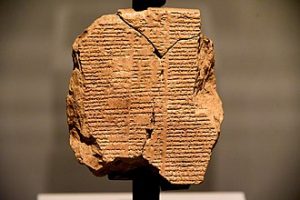
Enkidu was chided by Humbaba for his cruelty. He suggested that Enkidu was jealous and worried that Humbaba would replace him as Gilgamesh’s favorite. Shamash was no match for Enlil, the god of earth, wind, and air. Humbaba reminded them that he was Enlil’s servant. It was certain that Gilgamesh would bring a curse upon himself if he killed him. Gilgamesh was told by Enkidu to kill the demon soon before Enlil discovered their plans and intervened. To guarantee their fame, they must kill Humbaba and steal his cedars. The result was Humbaba’s death. As a monument to their great adventure, Gilgamesh fashioned a new gate from the tallest tree in the forest. With the gate and Humbaba’s head carried on their raft, the companions floated back to Uruk after cutting down more trees.17
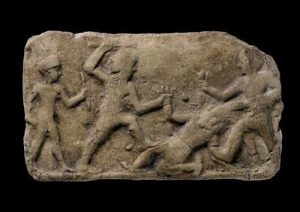
The filth of battle was washed from Gilgamesh’s hair and body when he returned to Uruk. A clean robe and cloak were donned by him, as well as weapons that had been cleaned of Humbaba’s blood and polished. Ishtar, the goddess of love and war, was overcome with lust when Gilgamesh tied his hair back and set his crown on his head.18 Her plea to Gilgamesh was for him to become her husband. In exchange for planting his seed in her body, she promised him riches. A lapis lazuli chariot with golden wheels would be given to him, along with a house made of cedar. According to her, kings and princes would hand over all their wealth to him. However, Gilgamesh did not want to be her toy. As a goddess, she had everything she could possibly desire, so he had nothing to offer her in return. In his words, she would soon lose interest in his body as her desire was fleeting. According to him, all her human lovers had realized how treacherous and cruel her heart and whims were.19
There was fury in Ishtar’s heart. To use the Bull of Heaven, she went to her father, Anu, the god of the firmament, and to her mother, Antum. Having the bull gore Gilgamesh to death was what she wanted to watch. Despite Gilgamesh’s truth, her father was unable to comprehend her anger. An outburst of tantrums erupted from Ishtar. Her parents must give her the bull, or she would let all the dead people out of the underworld to feast on the living. Despite this, Anu hesitated. A seven-year famine would be caused by the bull, he warned her. The populace and flocks of Uruk would be provided for by Ishtar, and he yielded to her.20
The bull was unleashed by Ishtar. Upon seeing the beast coming down from the sky, Uruk trembled. One hundred men died after a crack opened in the earth. The ground cracked open again when the bull bellowed and it swallowed up another hundred men. Enkidu attacked the bull the third time this occurred. He was spat upon by the bull, but Enkidu grabbed its horns and wrestles with it. Gilgamesh joined him in fighting the bull after he called out to him. Gilgamesh finally killed the monster by thrusting his sword between its shoulders after Enkidu seized its filthy tail.21 A sacrifice was made to Shamash, the sun god, by cutting out its heart.
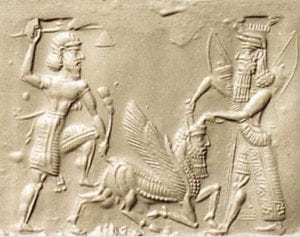
The two friends were cursed by Ishtar as she climbed the walls of the city. A bloody haunch from the bull was picked up by Enkidu and hurled at her. Whenever she approached, he shouted that he would kill her as well. It was during the mourning of Ishtar and her followers that Gilgamesh called together his craftsmen and showed them how beautifully the gods had crafted the bull, and how thickly its horns were covered with lapis lazuli. In sacrifice to his father, Lugalbanda, Gilgamesh cut off the heads of the craftsmen and filled them with oil. They were then hung as trophies on the walls of his palace. As Gilgamesh and Enkidu rode in triumph through Uruk, basking in the admiration of the people, they scrubbed the bull’s gore from their bodies in the Euphrates. “Gilgamesh is the best hero!” Gilgamesh boastfully asked the crowd. After waking up from a dream, Enkidu asked Gilgamesh why the gods were meeting.22
In the middle of a nightmare, Enkidu woke up. A meeting of the gods was held in his dream to decide the fate of him and Gilgamesh due to their anger. Having killed Humbaba and the Bull of Heaven, along with felling the tallest cedar tree, Great Anu, Ishtar’s father, decreed someone must be punished. There must only be one death among the companions. In Enkidu’s case, he was supposed to die, not Humbaba. Enkidu’s defense was provided by Shamash, the sun god. Shamash simply took their side, which angered Enlil, who called Shamash their comrade, not a god. Enkidu fell ill, proving the dream true. Bringing back the cedar gate from the forbidden forest with Gilgamesh, he cursed it out of self-pity. His fate was to be forgotten forever, and he would rather die this way than chop the gate to pieces. There was a great deal of distress in Gilgamesh’s heart. In his words, he told Enkidu that he had personally pleaded his case to the gods, but Enlil was adamant.23
A monument even greater than the cedar gate would be built by Gilgamesh for his friend. A gold statue of Enkidu would be erected by him. In a cry for help, Enkidu turned to Shamash. His first sighting at the watering hole led him to curse the hunter who first noticed him and hope his pits and traps had been filled in. In tears, he cursed the temple prostitute as well, for seducing him away from the animals. He was answered from afar by Shamash. Since he would not have tasted the palace’s rich foods, worn beautiful clothes, and known Gilgamesh’s friendship without the harlot, he wondered why Enkidu cursed her. He told Enkidu that Gilgamesh’s grief would leave him wandering the earth after he died. As Shamash comforted Enkidu, he found solace. A blessing was superseded by his curse: May the prostitute’s patrons be the richest and most generous.24
On his sickbed the next morning, Enkidu described another terrible dream to Gilgamesh. A man with an eagle’s talons and a lion’s head grabbed him as he lay alone on a dark plain. Despite their fierce fighting, the man eventually overpowered him and transformed him into a birdlike creature. His next move was to drag him down to the underworld. He saw feathered kings, priests, and gods there. The god of cattle, Samuqan, and King Etana, whom Ishtar had once chosen as Kish’s king, appeared to him. There was darkness surrounding them all. They ate and drank dirt. A scribe of the gods, Belit-Seri, kneeled before Queen Ereshkigal, ruler of the underworld. Her tablet tells everyone’s fate. They were looking at them when Enkidu said she asked who led them there. Enkidu remained suffering for twelve more days before dying.25
Gilgamesh remained by his friend’s body until a worm crawled out of its nose. His royal garments were tossed aside with disgust as if they were filthy, and he wore unscraped and hair-covered animal skins. A carnelian bowl was filled with honey, a lapis lazuli bowl with butter, and a bowl of honey was filled with butter. Following Shamash’s advice to Enkidu, Gilgamesh set off into the wilderness. Desolate with sorrow, he wandered alone, wondering if he would also die.26
- Azad Sharif, Birzo Mohammad, and Ismail Saeed, “Nature’s Retaliation in the Sumerian Epic Gilgamesh: An Ecocritical Study,” Journal of Garmian University 6, no. 2 (July 1, 2019): 396, https://doi.org/10.24271/ garmian.196232. ↵
- Susan Ackerman, “Gilgamesh and Enkidu,” in When Heroes Love, The Ambiguity of Eros in the Stories of Gilgamesh and David (Columbia University Press, 2005), 84, https://www.jstor.org.blume.stmarytx.edu:2048/stable/10.7312/acke13260.7. ↵
- Benjamin R. Foster, Douglas Frayne, and Gary M. Beckman, eds., The Epic of Gilgamesh: A New Translation, Analogues, Criticism, 1st ed, A Norton Critical Edition (New York: Norton, 2001), 59. ↵
- “The Epic of Gilgamesh – Read the Excerpt,” Annenberg Learner, accessed October 31, 2022, https://www.learner.org/series/invitation-to-world-literature/the-epic-of-gilgamesh/the-epic-of-gilgamesh-read-the-excerpt/. ↵
- Clark Roomland, “EPIC OF GILGAMESH – EPIC POEM SUMMARY | Other Ancient Civilizations,” Ancient Literature (blog), accessed October 31, 2022, https://ancient-literature.com/ other_gilgamesh.html. ↵
- Susan Ackerman, “Gilgamesh and Enkidu,” in When Heroes Love, The Ambiguity of Eros in the Stories of Gilgamesh and David (Columbia University Press, 2005), 48. ↵
- Alexander Heidel, The Gilgamesh Epic and Old Testament Parallels: A Translation and Interpretation of the Gilgamesh Epic and Related Babylonian and Assyrian Documents, 2. ed., 14. impr, Phoenix Books (Chicago: Univ. of Chicago Press, 1989), 37. ↵
- Jared Aragona, “The Epic of Gilgamesh,” accessed November 1, 2022, https://open.maricopa.edu/worldmythologyvolume2heroicmythology/chapter/the-epic-of-gilgamesh/. ↵
- Clark Roomland, “EPIC OF GILGAMESH – EPIC POEM SUMMARY | Other Ancient Civilizations,” Ancient Literature (blog), accessed November 2, 2022, https://ancient-literature.com/other_gilgamesh.html. ↵
- Alexander Heidel, The Gilgamesh Epic and Old Testament Parallels: A Translation and Interpretation of the Gilgamesh Epic and Related Babylonian and Assyrian Documents, 2. ed., 14. impr, Phoenix Books (Chicago: Univ. of Chicago Press, 1989), 6. ↵
- Alexander Heidel, The Gilgamesh Epic and Old Testament Parallels: A Translation and Interpretation of the Gilgamesh Epic and Related Babylonian and Assyrian Documents, 2. ed., 14. impr, Phoenix Books (Chicago: Univ. of Chicago Press, 1989), 37. ↵
- Alexander Heidel, The Gilgamesh Epic and Old Testament Parallels: A Translation and Interpretation of the Gilgamesh Epic and Related Babylonian and Assyrian Documents, 2. ed., 14. impr, Phoenix Books (Chicago: Univ. of Chicago Press, 1989), 7. ↵
- Jared Aragona, “The Epic of Gilgamesh,” accessed November 1, 2022, https://open.maricopa.edu/worldmythologyvolume2heroicmythology/chapter/the-epic-of-gilgamesh/. ↵
- Alexander Heidel, The Gilgamesh Epic and Old Testament Parallels: A Translation and Interpretation of the Gilgamesh Epic and Related Babylonian and Assyrian Documents, 2. ed., 14. impr, Phoenix Books (Chicago: Univ. of Chicago Press, 1989), 64. ↵
- Alexander Heidel, The Gilgamesh Epic and Old Testament Parallels: A Translation and Interpretation of the Gilgamesh Epic and Related Babylonian and Assyrian Documents, 2. ed., 14. impr, Phoenix Books (Chicago: Univ. of Chicago Press, 1989), 47. ↵
- Andrew George, The Epic of Gilgamesh: Thoughts on genre and meaning, (University of London, Peeters, 2007), 34. ↵
- Alexander Heidel, The Gilgamesh Epic and Old Testament Parallels: A Translation and Interpretation of the Gilgamesh Epic and Related Babylonian and Assyrian Documents, 2. ed., 14. impr, Phoenix Books (Chicago: Univ. of Chicago Press, 1989), 49. ↵
- Fumi Karahashi and Carolina López-Ruiz, “Love Rejected: Some Notes on the Mesopotamian ‘Epic of Gilgamesh’ and the Greek Myth of ‘Hippolytus,’” Journal of Cuneiform Studies 58 (2006): 99. ↵
- Fumi Karahashi and Carolina López-Ruiz, “Love Rejected: Some Notes on the Mesopotamian ‘Epic of Gilgamesh’ and the Greek Myth of ‘Hippolytus,’” Journal of Cuneiform Studies 58 (2006), 98. ↵
- Fumi Karahashi and Carolina López-Ruiz, “Love Rejected: Some Notes on the Mesopotamian ‘Epic of Gilgamesh’ and the Greek Myth of ‘Hippolytus,’” Journal of Cuneiform Studies 58 (2006), 99. ↵
- Karen Emmerich, “‘A Message from the Antediluvian Age’: The Modern Construction of the Ancient ‘Epic of Gilgamesh,’” Comparative Literature 68, no. 3 (2016): 254. ↵
- Clark Roomland, “EPIC OF GILGAMESH – EPIC POEM SUMMARY | Other Ancient Civilizations,” Ancient Literature (blog), accessed October 31, 2022, https://ancient-literature.com/other_gilgamesh.html. ↵
- Herbert Mason, “The Death of Enkidu: From Gilgamesh,” The American Scholar 40, no. 1 (1970), 138. ↵
- Alexander Heidel, The Gilgamesh Epic and Old Testament Parallels: A Translation and Interpretation of the Gilgamesh Epic and Related Babylonian and Assyrian Documents, 2. ed., 14. impr, Phoenix Books (Chicago: Univ. of Chicago Press, 1989), 21. ↵
- Herbert Mason, “The Dells Gilgamesh, if he had died in battle he would have been blessed because soldiers who die in battle arath of Enkidu: From Gilgamesh,” The American Scholar 40, no. 1 (1970), 138. ↵
- Herbert Mason, “The Death of Enkidu: From Gilgamesh,” The American Scholar 40, no. 1 (1970), 141. ↵
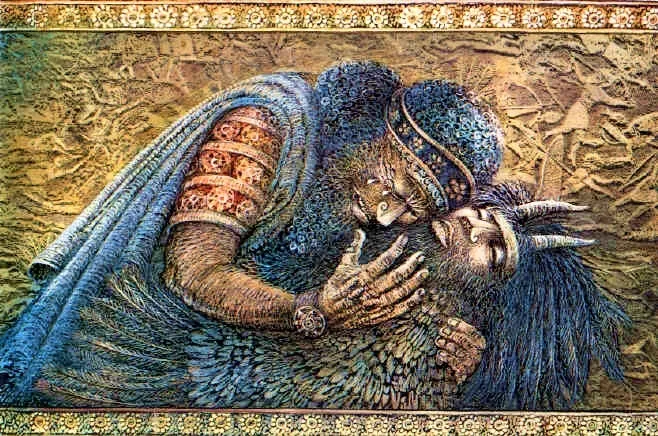

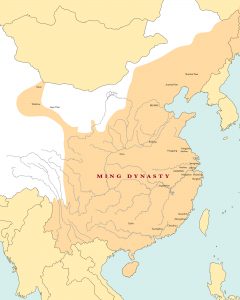
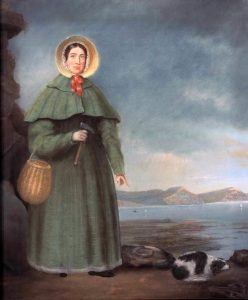
23 comments
Michaell Alonzo
Hey Robert, congrats on your nomination for an award for your article. This post was so beautifully written and fascinating to read. This page has an astonishing quantity of specific information. I really adored the pictures you chose, which perfectly complemented the narrative you were presenting. I really appreciated how well-organized you were; it made the reading interesting for me.
Jose Luis Gamez, III
I learned so much from your article. I have no clue who Gilgamesh and Enkidu were and I’m glad I read your article. I found it very interesting and informative. Congrats on your nomination.
Alia Hernandez Daraiseh
Congratulations on your article being nominated. It is apparent on how much dedication and time you put into this article. I love the detail and the pictures you used, I also loved the title choice as it led me to pick this article to read. I have had no knowledge to this before reading it, so it was extremely interesting to learn about.
Shecid Sanchez
First congratulations on your award nominations! Reading the title of your article I had no idea what it was about because I’ve never heard about it. The Gilgamesh and Enkidu story is so interesting not only on the information you provided but about their relationship as well.
Alyssa Leos
First I want to say congratulations on your article being nominated for an award. From reading your article title it really grabbed my attention because I had never heard of Gilgamesh and Enkidu and I like learning new things. This article was very well informed and very detailed. Towards the end of the article was probably my favorite part because of the dream Enkidu had. I wonder what happened after Gilgamesh set off into the wilderness. Again congratulations on your article being nominated!
Rigel
Amazing article! This is the first time I read about Gilgamesh and Enkidu, and it was provided with information about not only their story, but also their relationship. Your article provides what is necessary to understand their relationship and the images help complete the narrative. Also, the dreams Gilgamesh has and how Enkidu interprets them are interesting and I would love to learn more about it. Also, congrats on the nomination!
Dejah Garcia
What a great article I enjoyed reading this interesting story. Congratulations on your nomination! The imagery was a big part that grabbed my attention while your reading this article. Also i loved how you were super organized it helped me to stay engaged with the reading ! Again congratulations and good luck on your nominations ! 🙂
Lorena Maldonado
This is such an interesting story! I have never heard of this before, and it was so great to read about it. It was very well written, and I think you conveyed this story well. It flowed nicely and I think it was so detailed. I like the way you explained things and it made it easier to understand since I was hearing it for the first time.
Franchesca Tinacba
Awesome article! To be quite honest, I had no idea what this topic was about or any of the background. For someone who has no knowledge, this was very-detailed, yet easy to follow. The pictures and the nice flow of the writing help to tie the main subject together so nicely. Awesome job!
Ana Barrientos
First and foremost, congratulations on your nomination! It is well deserved! The title brought me in, and I am glad it did. The way you told the story with so much detail was incredible. I have never heard of Gilgamesh and Enkidu before but after reading your article, I can say that I feel more informed about their story. Overall, incredible job!